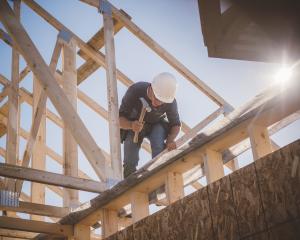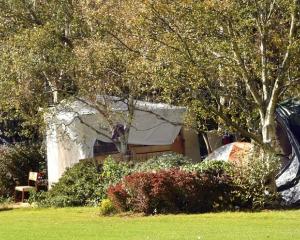
But CoreLogic head of research Nick Goodall predicts the trend will end this year as the market continues to rise, pushing prices out of reach for many looking for a first home.
According to CoreLogic data in the last quarter of 2020 in Dunedin, first-home buyers made up 27% of all buyers, compared with 24% for the same period in 2019. In Invercargill the rate of first-home buyers climbed from 26% to 28%, while the rates were steady in Queenstown (17%) and Central Otago (9%).
This was despite the house price increases continuing across all those areas.
In Dunedin median prices were up 1.9% to $582,000, Invercargill 2.5% to $379,000, Central Otago 1% to $592,000 and Queenstown 1.3% to $1.21million.
Mr Goodall said to enter the market first-home buyers were changing expectations about what and where they could buy, using their KiwiSaver funds and taking advantage of low interest rates.
But that might not last.
"At the current rates of growth, entering the property market will certainly become more difficult throughout the year," Mr Goodall said.
Nidd Realty owner Joe Nidd, of Dunedin, said within Dunedin, places once known as state housing areas and seen as undesirable in the past were now being fiercely contested by first-home buyers.
Areas such as Lookout Point and Brockville were becoming highly sought after as the most affordable parts of the city.
Well-built houses on good-sized sections with good views and good sun were sought after now, regardless of previous perceptions of the areas. The competition for properties that he was seeing on a day-to-day basis was "immense".
Some first-time buyers were chasing their sixth, seventh or eighth property and still missing out, he said.
Each time they were spending money on due diligence and the process was not only demoralising, it was costly.
Investors were becoming very active again, which further increased the demand.
Dunedin City Council planners were doing well to address a lack of supply in the city by providing for increased residential density in the central city and some new greenfields development.
But it took years between recognising the problem, providing for it in plans, and homes being built, he said.
And Dunedin remained years away from recent changes making a difference for first-home buyers, Mr Nidd said.
At the other end of the property ladder business was good, Bayleys Metro managing partner Mark Stevens said.
Anything with a sea view was increasingly sought after but the interest in properties in the middle to upper end of the market was strong across the city, or greater Dunedin.
In the top-end of Dunedin’s markets there was an unprecedented number of overseas buyers as New Zealanders returned home and buyers from other cities came to Dunedin.
After 34 years in the business, Mr Stevens had not seen so many out-of-town people buying houses.
And he warned about associating rising median house prices with first-time buyers.
First-home buyers typically did not enter the market in the middle, but rather bought houses nearer the bottom of the market.
"There’s not a problem in Dunedin at all," Mr Stevens said.
"When someone buys their first car, they don’t buy a brand new car, they buy a second-hand car."
Comments
Can't see the govt doing anything about it tbh, they will be receiving increased gst, taxes etc from it.
High house prices enrich the banks at the expense of ordinary Kiwis.
The only way to ever bring them back to affordable is to stop bringing in higher numbers of immigrants each year than we build new houses.
Until we do that, house prices will continue to spiral, and the chances of our own kids ever being able to afford a home will become less and less likely.












